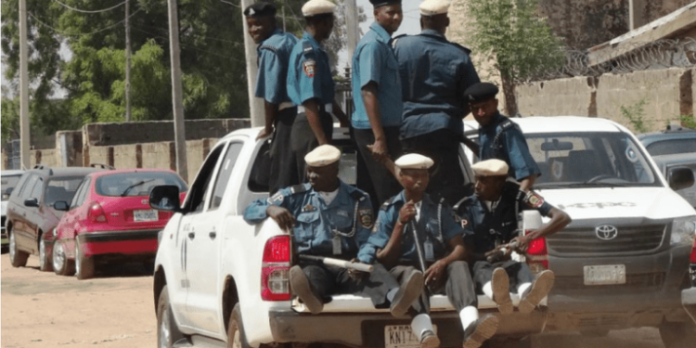In a distressing revelation, the Kano State Hisbah Board has reported the rescue of over 230 children wandering the streets of Kano metropolis. Weeks after the operation, no parent or guardian has stepped forward to claim any of the minors. This startling development was disclosed by the Commander-General of Hisbah, Aminu Daurawa, in a video message that has since gone viral, shedding light on a heartbreaking social crisis.
Children of the Streets
The rescue operation, carried out by Hisbah officers in the dead of night, uncovered children as young as five living in deplorable conditions under bridges, in railway stations, motor parks, and markets. Describing the operation, Daurawa said:
“We began around 1 a.m. and continued until 3 a.m. At such a time, every child should be at home with their parents. These children were not. They have been born and raised in these public spaces.”
The commander revealed that four of the rescued children had succumbed to illnesses caused by harsh weather conditions, malnutrition, and lack of medical care.
A Growing Problem
According to Hisbah’s findings, the rescued children are merely a fraction of a much larger problem.
“This is just the beginning. We estimate there are at least 5,000 street children in Kano alone,” Daurawa noted. “We only managed to rescue 230 because our facilities could not house more.”
The children are currently receiving medical care, food, and shelter, but their long-term future remains uncertain.
The Government’s Role
The Kano State Government facilitated the rescue mission by providing logistical support and temporary housing for the rescued children. However, the absence of their parents or guardians has raised questions about the societal and familial neglect that allowed these children to slip through the cracks.
Bashir Ahmad, a former presidential aide and chieftain of the ruling All Progressives Congress (APC), expressed his dismay at the situation.
“I watched Sheikh Aminu Daurawa’s video, and it was deeply moving. To think that over 230 children could be abandoned, and no parent has come forward to claim them, is heartbreaking,” Ahmad said.
Ahmad called on the government to use this as a springboard for broader discussions on child welfare in Nigeria.
“The government alone cannot solve this issue, but it has the capacity to rally capable individuals and organizations to end this menace once and for all,” he added.
Why Are Parents Missing?
The absence of parents in this scenario speaks to deeper societal issues. Many of the rescued children are believed to be from low-income or itinerant families, where poverty forces children into the streets to fend for themselves.
Daurawa explained that some children were found sleeping in video halls used as makeshift lodging by those who paid to watch football matches.
“These children were born and raised in public spaces like railway stations and motor parks. Some parents abandon them outright, while others send them out to beg,” he said.
Almajiri System Under Scrutiny
The crisis in Kano also brings into focus the Almajiri system, a practice where children are sent to Islamic schools far from their homes. While the system was historically a means of religious education, it has faced criticism for leaving children vulnerable to exploitation and neglect.
The Hisbah operation highlights how such children, without adequate care or oversight, become part of the street population. Critics argue that systemic reform is needed to address the failures of this system.
Public Reactions and Solutions
The video has sparked a wave of reactions from Nigerians, with many calling for urgent action to address the plight of street children. Some have suggested community-driven initiatives to reintegrate rescued children into society.
The Kano State Government has promised to intensify efforts to locate the children’s families and work with social welfare organizations to ensure their rehabilitation. However, experts say tackling the issue will require addressing the root causes of child neglect, including poverty, lack of education, and unemployment.
A Cry for Collective Action
For Daurawa, the rescue operation is just the beginning of a broader mission to protect Kano’s most vulnerable.
“This problem cannot be solved by Hisbah or the government alone,” he said. “It requires the collective effort of religious leaders, community elders, and every Nigerian to ensure that no child is left to live and die on the streets.”
The story of Kano’s abandoned children serves as a stark reminder of the challenges facing Nigeria’s social welfare system. It is a call to action for all stakeholders to work together to ensure that no child is left behind.
Beyond Rescue
While the 230 children rescued represent a victory for Hisbah, their stories highlight the need for systemic changes to prevent others from suffering the same fate. Until these changes are made, the streets of Kano — and indeed Nigeria — will continue to bear silent witness to the lives of children forgotten by society.

